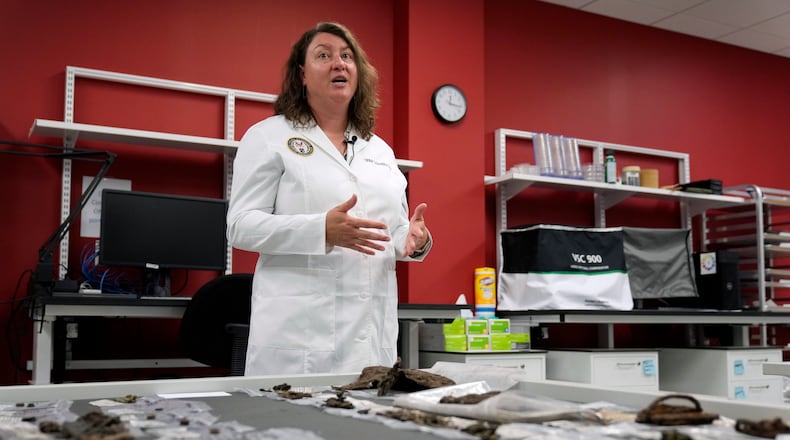He was killed when carrier-borne aircraft attacked and sank the Oryoku Maru, a Japanese transport ship in Subic Bay that was holding Bianchi and other POWs.
The Defense POW/MIA Accounting Agency officially accounted for Bianchi on Aug. 11, but the public announcement of his identification was made to coincide with National POW/MIA Recognition Day, held each year on the third Friday of September.
“When wounded early in the action by 2 bullets through the left hand, he did not stop for first aid but discarded his rifle and began firing a pistol,” the MOH citation reads. “He located a machinegun nest and personally silenced it with grenades.
“When wounded the second time by 2 machinegun bullets through the chest muscles, 1st Lt. Bianchi climbed to the top of an American tank, manned its antiaircraft machinegun, and fired into strongly held enemy position until knocked completely off the tank by a third severe wound.”
Bianchi died Jan. 9, 1945, at age 29. Gen. Douglas MacArthur presented his mother the Medal of Honor six months later.
During a ceremony Friday at the National Memorial Cemetery of the Pacific in Honolulu, Fern Sumpter Winbush, DPAA’s principal deputy director, told the audience that the agency had accounted for 220 missing service members in the current fiscal year — the first year to break 200 since the Covid-19 pandemic began.
“The magnitude of DPAA’s mission is a stark reminder of sacrifices made and the work that remains — and the numbers of the unaccounted-for are daunting,” she said. “From World War II, there remain 70,850, from the Korean War 7,398, from the Vietnam War 1,566, and six still unaccounted for from the Iraq wars and other operations.”
“Behind each number is a family who awaits answers.” Winbush said.
Among them is Natalie Rauch, who said during the ceremony’s keynote speech that she was 8 years old when her father went missing in his Air Force reconnaissance jet over North Vietnam on April 26, 1966.
“My mom actually hoped that he was one of the prisoners of war,” Rauch recalled.
On Jan. 27, 1973, a peace accord was signed ending U.S. combat operations in Vietnam, and the Defense Department learned the names of all living American POWs to be released.
“And so the military had to call every missing-in-action family, and say yes or no, your person is coming home,” Rauch said. “I remember that day. My mom got a no. After seven years — just think, seven years of just not knowing, seven years — she knew he was not coming home.”
Rauch has waited a lifetime to hear otherwise.
“I want to say you might see a little gray hair up here,” she said, pointing to her head, “but on the inside, I’m just that 8-year-old little girl waiting for her dad to come home.”
© 2025 the Stars and Stripes. Visit www.stripes.com. Distributed by Tribune Content Agency, LLC.
About the Author
